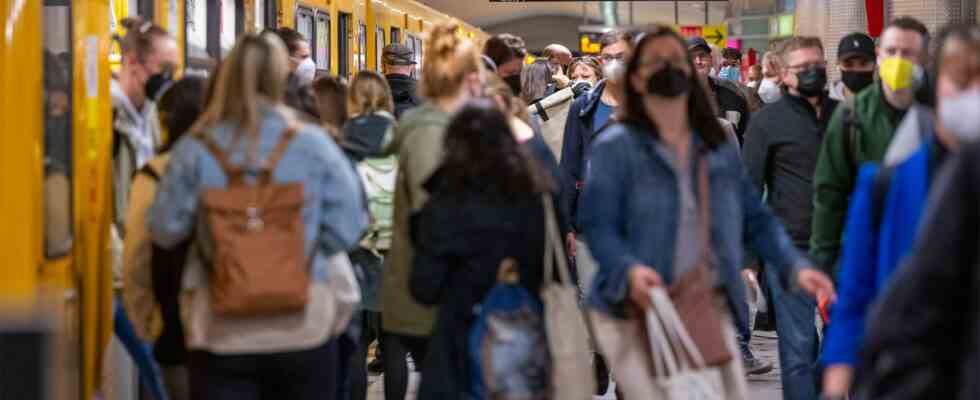Status: 06/30/2022 10:46 a.m
For a month now, people have been able to travel throughout Germany with the 9-euro ticket on local transport. The popularity is enormous – 21 million special tickets were sold. Apparently, this also led to fewer traffic jams.
Millions of people bought the 9-euro ticket in the first month of validity – and thus also relieved the rush-hour traffic on the streets. According to the Association of German Transport Companies (VDV), around 21 million of the special tickets were sold nationwide.
“Together with the approximately ten million subscribers who automatically receive the discounted ticket, the number of 30 million tickets per month previously calculated by the industry has not only been reached, but even slightly exceeded,” said VDV President Ingo Wortmann With. The figures refer to June.
Commuters lost less time
Meanwhile, there was measurably less traffic on the streets in the first month with a 9-euro ticket: An analysis by the traffic data specialist Tomtom for the dpa news agency shows a decrease in the level of traffic jams in 23 of the 26 cities examined compared to the time before the introduction.
The data “suggests that this decline is related to the introduction of the 9-euro ticket,” said Tomtom traffic expert Ralf-Peter Schäfer. “Commuters lost less time driving to and from work in June than in May in almost all cities surveyed.”
Specifically, the experts compared the rush-hour traffic jams on workdays in calendar weeks 20 and 25. The periods were chosen to avoid the effects of holidays and public holidays.
“Positive effect on traffic flow”
The result was therefore clear. “In the first few days after the introduction of the 9-euro ticket, the data from Tomtom showed hardly any effects of the measure on car traffic,” said Schäfer. “Meanwhile, however, a positive effect on the flow of traffic can be seen in almost all cities in Germany that were examined.”
The improvement in congestion levels was particularly strong in Hamburg and Wiesbaden. There, the congestion level dropped by 14 and 13 points respectively. This means that car drivers lost an average of 4.2 minutes less in Hamburg and 3.9 minutes in Wiesbaden on a route that would take 30 minutes without traffic. TomTom only observed slight deterioration in Kiel and Nuremberg. In Karlsruhe, the level of congestion remained unchanged.
Willingness to buy apparently high
It is unclear how the ticket is actually used. Deutsche Bahn, through whose channels a large part of the special tickets are sold, speaks of a passenger growth of 10 to 15 percent in its own regional transport in June compared to the level before the Corona crisis. However, the company is comparing different periods of time, namely June of this year with the demand at the end of 2019. The comparison is therefore limited.
The fact is: Buses and trains were full, especially on the tourist routes. According to surveys by the VDV, people are said to have signaled a similarly high level of willingness to buy in July. President Wortmann said that market research shows that the majority of customers do not use the 9-euro ticket for excursions or vacation trips, but in everyday life.
“This means that these passengers will also have the relief they are hoping for in terms of everyday mobility costs.” Wortmann again called for “financing security” from the federal government for the period from September when the 9-euro ticket expires. Transport companies’ costs are “exploding” as a result of rising electricity and diesel prices, he said.

